- Home
- Scott Turow
The Last Trial Page 33
The Last Trial Read online
Page 33
Stern answers at once.
“Thank you for that reminder, Mr. Appleton. I am well aware that the judge has told the jury to pay no mind to much of the evidence you introduced. But I am speaking about your star witness, Dr. Innis McVie.”
Stern looks up at the judge, who is stifling the smallest smile at the way Stern mousetrapped Moses into talking about what she said could not be mentioned.
“Proceed,” she says.
“There is clear evidence in this case that one person—and only one person—knew that g-Livia carried a risk of sudden death in its second year of use. One person. Innis McVie.”
Feld, clearly agitated, gets up again.
“That’s not what she said, Your Honor. A failure to deny is not a confirmation.”
Sonny narrows her eyes at Feld.
“Enough, Mr. Feld. You had your turn to talk about the evidence. Mr. Stern is entitled to his without interruptions concerning his interpretation of the testimony.”
The judge’s look at her former clerk is even sharper than her tone. When Feld sits, Moses places his hand on his arm and whispers to him forcefully. Stern’s guess is that from now on, the US Attorney will make the objections. Stern takes his time watching them, in the hope jurors will notice, too.
“Innis McVie told her friends, the Neucrisses, that there were problems, unexplained deaths in the second year on g-Livia, and the Neucrisses went out and called doctors and lined up patients to sue PT. And then to hide Innis McVie’s role, they planted a story in the Wall Street Journal, so the world would think it was Gila Hartung’s scoop, not Innis McVie leaking information, that led them to their clients.
“Yet you heard directly from Innis McVie—you saw her caught in her deceptions by phone records she thought no longer existed. We do not know the entire story, because Dr. McVie stopped answering questions. But she knew that g-Livia carried the risk of sudden death in the second year of use—because that is exactly what the Neucrisses told Gila Hartung after speaking to Dr. McVie. And Dr. McVie pointedly did not deny that, as she sat before you on that witness stand, even though she had previously raised her hand to God and told the grand jurors”—Stern reads from a transcript page—“‘I knew nothing about g-Livia causing sudden deaths until after I spoke to Dr. Pafko on August 7, 2018.’ But when she was confronted with her calls and texts to the Neucriss law office, you heard something very different.
“She came here to lie, to convict Kiril Pafko. You saw that. She was willing, even on the witness stand, to alter the statements she had attributed to Kiril, which were fictitious from the start, to make them even more incriminating. Dozens of times before this trial, she had spoken about a conversation that supposedly had taken place in Kiril’s office in September 2016, during which she claimed Kiril told her ‘the problem was solved.’ But that was not good enough. During this trial, it became Kiril saying, ‘I did some things to solve the problem.’
“When Mr. Appleton gets up here to speak his final words, listen carefully. See if he tells you that Innis McVie was a truthful witness. He is an honorable person. I predict now that he will not do that. He will tell you to listen to the recording she made. As if Innis McVie were nothing but a robot with a microphone attached, as if all the lies that are behind that recording, as if all the scheming with the Neucrisses, do not matter. But we know now that she was laying traps for Kiril with every word, so the prosecutors could pounce on any ambiguity.
“The truth that the government wishes desperately not to admit is that they have no case on fraud without her. Due to Innis McVie’s lies, they cannot tell you what actually happened at PT in September 2016. Innis and her lies stand for nothing, except—except—that the events at Pafko Therapeutics in late 2016 are a black hole in the prosecutor’s case. How did Innis know what she did? The prosecutors have not told us. What did Innis, who desperately wanted to leave the company, do when she found out there was a problem with the medication? What course did she set to preserve her path to the exits? How many other lies has she told about Kiril, and when did they start? We can speculate, but the prosecutors, and the evidence they have offered, do not tell us.
“Yet we surely have a fair basis to ask whether Innis’s determination to leave Pafko Therapeutics and sell all her stock had something to do with what she—and she alone—had discovered about g-Livia. You have heard during this case about 10b5-1 plans, which are these schedules corporate officers and other insiders, like members of the board of directors, agree to in advance to sell their stock in a company. They must stick to this prearranged schedule for share sales to minimize any questions about insider trading. As you heard from Yan Weill, a new 10b5-1 plan was adopted at PT late in 2016, after the FDA made various public announcements that indicated g-Livia would soon be approved for sale in the US. You will have that written plan back in the jury room with you—here it is on the screen, Defense Exhibit MedInvest-3—and I urge you to pay very close attention to the intentions of two of those insiders. As Yan Weill explained, most of the officers and directors, like Lep, or Yan Weill, or Dr. Tanakawa—a number of officers and directors adopted an orderly schedule to sell some but not all their shares at regular intervals in 2017 and 2018. A prudent course and unremarkable.
“But two people stand out in contrast.” The document is on the monitor, and Stern uses a laser pointer Pinky has handed him. “The first is Kiril Pafko. Notice again, please, that Kiril was the only insider who made no plans to sell any of the shares he owned personally during this time frame. Now I hope Mr. Appleton can explain something to you, because it makes no sense to Marta and me. If Kiril Pafko knew he had defrauded the FDA into approving g-Livia, if Kiril realized there was a problem with the medication that was going to appear in its second year of use, why in the world did he not make plans to sell as much of his stock as fast as he could under the law? If you know you are aboard the Titanic, you find the life jackets. Yet he made no such provisions.
“Who did? One person. Only one officer. Innis McVie. Wholly unlike Kiril, Innis was determined to sell every share of PT she owned as soon as she could, even though—as Gila Hartung put it in the Wall Street Journal article you will have back in the jury room—even though PT was becoming the hottest biotech stock on the market, rising in value like a rocket. Only Innis was determined to sell every share without waiting to see what offers to buy Pafko Therapeutics emerged. Why do that? She said on the stand she just wanted to cut ties with the company as quickly as possible. Was that the reason? Or was it because Innis McVie knew there was a problem with g-Livia that might be discovered at any moment and drag the share values down close to zero? Innis sold out completely—and then tipped off the Neucrisses as soon as she had gotten her money and had nothing left to lose. It is Innis McVie who should be sitting in this chair”—Stern has found his way behind Kiril and has put a hand on his client’s shoulder—“charged with fraud and, of course, perjury.
“So much for the many fraud counts.”
Stern lets his eyes drift over the jury box, assessing. Two jurors, both men, seem to be shifting in their seats, which he reads as discomfort with what he is contending. They are probably thinking, But how did Innis know about the problems with g-Livia in the first place? Who told her, if not Kiril? Stern cannot answer those questions, for the jurors or even for himself. Yet it is not his job or theirs to solve every riddle, and with luck, they will understand that.
“‘All right,’ you say, ‘Sandy, Mr. Stern, we agree. We do not know for sure what happened on the phone with Wendy Hoh. We cannot see how the FDA was actually defrauded under the law. And surely, we cannot count on anything said by the demonstrated perjurer Innis McVie. You are correct, Sandy,’ the group of you say. ‘About the fraud charges, we must declare we do not know for sure.
“‘But what about the insider trading?’ you say. ‘That seems a little clearer.’
“No, I tell you. It is not.
“What proof did Mr. Feld offer you that Kiril Pafko actually gave the o
rder to sell these shares? ‘Circumstances,’ he said. ‘The chain of events’: Gila Hartung’s call to Kiril. The ensuing conversation with Innis McVie, where she told him to sell his stock. A ten-second call that followed to Dr. Pafko’s broker, with the unusual name of Anahit Turchynov. And her return call a few minutes later. That is their evidence: two or three lines of the phone records, along with documents showing that the grandchildren’s shares were sold an hour or so later that day. That is the beginning and end of the government’s proof on these counts. Calling the trade ‘an unsolicited order,’ as you learned, is meaningless and tells you nothing about who originated the sale. And in fact, we know that an unrelated security, an index fund, was also sold in the Pafkos’ personal account the same day, which could just as well have been the subject of those phone calls between Anahit and Kiril’s office.
“You do not know more. And you do not know because of the way the government decided to go about proving these charges. Ms. Turchynov, the stockbroker, was not called. For that you cannot blame the defense. Judge Klonsky will instruct you that the defense is under no obligation to produce any evidence—let alone witnesses—and from that you can draw no inferences against the defendant.
“But what about the government? You know, from what you have seen, that the government, with their power to grant immunity from prosecution, the government can force any person to come to the stand and answer questions. Anyone. They can even force a son to testify against his father.
“But they chose not to utilize that immense power to allow you to hear from Anahit Turchynov. Why? That is Mr. Appleton’s business, frankly. And goes beyond the evidence you have heard. But having made that choice, the government must live with the consequences. And in this case, the consequence is that you simply do not know for sure what happened.
“What the evidence shows you, from these order tickets that the government introduced”—Pinky now brings them up on the screen—“is that Anahit Turchynov was selling PT shares—her own, those of other customers—she was selling them before she entered Kiril Pafko’s orders. Look at these time stamps.” Stern again directs the pointer.
“If Anahit’s first indication that there was a problem with PT stock came from Kiril Pafko’s call, then why were Kiril’s shares not sold first? Or did she have another way of knowing, another source of information?
“Remember that for some reason Gila Hartung, the reporter, could not say for sure that she did not speak to Anahit as Hartung was investigating her story. And there is one more set of mystery people in this case: not just Anahit Turchynov, but, yet again, these lawyers by the last name of Neucriss. You have heard that name since this trial began. They are the plaintiffs’ lawyers who, months before August 2018, received information about the problems with g-Livia from their friend, the spiteful Innis McVie.
“I am sorry to tell you, Ladies and Gentlemen, but the sad fact is that the government did not do a proper job of investigating this case. They were so eager to get Gila Hartung on the witness stand that they allowed the lawyers for the Wall Street Journal to obstruct them. You saw that Gila Hartung, like all journalists, was very reluctant to reveal her sources. And you saw the lawyers who protected her in that goal. They were here in front of you, from New York, from Wall Street, three lawyers to listen to the testimony of one witness. Tireless attorneys, yes, but also completely disobedient. A law unto themselves, unwilling to listen even to Judge Klonsky. Total obstructionists. And rather than take a hard position with them, Moses Appleton and Mr. Feld—who, I must say in fairness, have many other things to do—decided they would settle simply to get Gila on the witness stand to testify about her supposedly incriminating conversation with Kiril Pafko.
“And so they did not know, until we exposed the truth right before your eyes, a truth the prosecutors with all their vast power had not bothered to discover, that the Neucrisses were Gila Hartung’s source. And not knowing that, they never forced any of the Neucrisses to answer questions, the first and most obvious of which is, Who told you about g-Livia? And so the prosecutors accepted Innis McVie’s perjury at face value.
“Again, I will imagine my dialogue with the group of you: ‘You are correct, Sandy, the prosecutors were thwarted by the Wall Street lawyers, they never got to the bottom of this, as they should have before the trial started, but what does that have to do with insider trading?’
“My answer is, Everything. The Neucrisses live here in Kindle County.” He motions to Pinky, who brings up on-screen the written waivers of medical confidentiality that were signed by representatives of the estates that became the Neucrisses’ clients. “You can see their address on the patient waiver letters that are in evidence. They were talking about the problems with g-Livia with Innis McVie. Did their knowledge of this—or Gila Hartung’s—find its way to Anahit Turchynov? That kind of information—what the Wall Street Journal was about to publish, that PT shares were going to crash in value—that moves like mercury, through any little crack. And it easily could have made its way to Anahit Turchynov. Remember a very very important point. Remember what these letters written on the Neucrisses’ letterhead demonstrate: The information about what had happened to the patients who had suddenly died was not confidential. And to be guilty of insider trading, as Mr. Feld acknowledged, you must be buying and selling stock on the basis of information you have a duty to keep confidential.
“I certainly understand that the law in this area probably sounds to you like an incomprehensible mess. You saw when PT’s outside counsel, who was in charge of explaining the law to people at PT like Kiril—you saw on cross-examination that even attorneys experienced in this area have a hard time explaining its many nuances. Gobbledygook, no matter how many times you hear about it, remains gobbledygook.
“But remember, the medical history of the Neucriss clients who had taken g-Livia and died, that was no longer confidential. Confidentiality was waived so the doctors could speak to Gila Hartung. And therefore, stock trades based on that information—on knowing there was a medical problem for some patients—such trades were not a crime. Any person who realized that the stock was destined to plummet, because they knew what the doctors were saying, any person who traded on that expectation would not have violated the law.
“And thus, the Neucrisses could have told Anahit about those problems, and even that they were going to file suit shortly and publicly expose the issues with g-Livia—they could have shared that information with Anahit without breaking any law. And having been told that, Anahit could have sold the shares of all her clients, even Kiril Pafko, completely lawfully, because she was acting on nonconfidential information.
“Is that in fact what happened? You do not know. Is one of the young Neucriss lawyers dating Anahit Turchynov, or do they live in the same condo building, or go to the same health club? You do not know for sure, because Mr. Appleton chose not to call Anahit Turchynov or grant her immunity, and he did not force one of the Neucrisses to the stand, even after their names emerged through the defense.”
Moses, who has appeared increasingly agitated by Stern’s accusations of investigative blunders, has come to his feet.
“Objection. We are not obliged to call or immunize witnesses.”
Stern again spins with that grace that has eluded him elsewhere for decades.
“Yes,” he answers, “but you are obliged, Mr. Appleton, to prove your charges beyond a reasonable doubt. Surely you do not object to that.” Across the well of the courtroom, he faces Moses directly for a second, like gentlemen at a duel. Moses, knowing it is not his turn to speak, beyond making objections, blinks several times, trying to calculate a response.
Sonny, briefly silent in the face of the byplay, now says, “Given how Mr. Stern puts it, the objection is overruled.”
Stern nods, then returns his attention to the jury.
“Now what will Mr. Appleton say in rebuttal? ‘Oh, Sandy is having flights of fancy. He is making things up. It is obvious that Kiril called Anahit and ini
tiated this sale.’ Fine, let’s consider the prosecutor’s point. You may assume that Kiril Pafko, a physician for more than fifty years, understands the rules of patient confidentiality. When Gila Hartung says, ‘I have talked to these doctors,’ he knows that what she is telling him cannot be confidential information, and therefore that he, like anyone else, can freely trade PT stock on that basis. And how can Mr. Appleton possibly answer that? Well, I imagine, as my dear, dead wife liked to say, he will ‘try to slice the bologna a little thin.’” Again, some smiles. “He will say, ‘Yes, the patient information was not confidential any longer, but the information about the Wall Street Journal story, that was confidential until it was published, and thus Kiril could not trade any PT shares.’
“Is Mr. Appleton right under this incomprehensible mess of laws? I leave that to you. Because it does not matter. Because to commit this crime, Judge Klonsky will tell you that Dr. Pafko first must have known he was violating a duty of confidentiality, he must have known he was doing wrong. Even Mr. Feld admitted that much when he described the elements of the offense. So let us go back in time to August 7, 2018: In that moment, when Kiril Pafko got off the phone, shocked and concerned about the fate of his lifesaving achievements, about a possible flaw in PT’s very careful research, about the future of his company, and about his grandchildren, could he have made a very understandable mistake about what this hodgepodge of laws required? Mr. Feld called your attention to the repeated warnings Kiril received from PT’s outside counsel, the lectures they had delivered about when he could and could not sell shares of the company. But what does that tell you? Think about this, please. That elaborate education about the law means, of course, that Kiril Pafko would not have proceeded unless he believed he was not violating the law, not engaging in insider trading, because the patient information Gila Hartung related was no longer confidential.”
Stern again is behind Kiril. Pafko, who has generally followed his lawyer’s admonition about not reacting to the evidence or arguments, is nodding in agreement, which immediately earns a black look from the judge. A defendant who has not subjected himself to the prosecutors’ cross-examination is cheating at the margins when he tries to signal the jury this way. While speaking, Stern places his hand on the back of Kiril’s neck and applies a firm squeeze, which freezes Pafko at once.

 Testimony
Testimony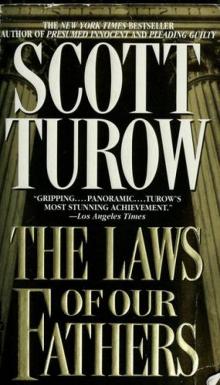 The Laws of Our Fathers
The Laws of Our Fathers Ordinary Heroes
Ordinary Heroes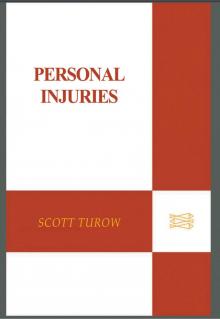 Personal Injuries
Personal Injuries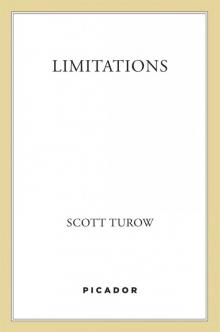 Limitations
Limitations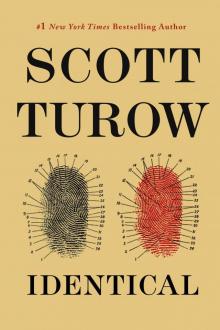 Identical
Identical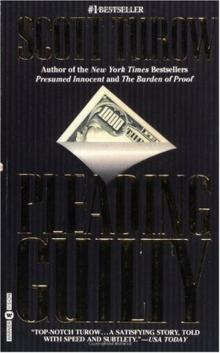 Pleading Guilty
Pleading Guilty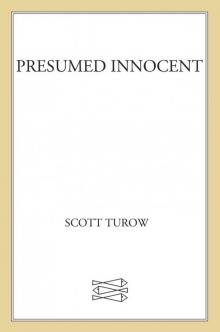 Presumed Innocent
Presumed Innocent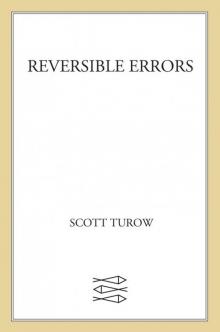 Reversible Errors
Reversible Errors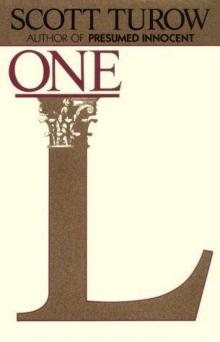 One L: The Turbulent True Story of a First Year at Harvard Law School
One L: The Turbulent True Story of a First Year at Harvard Law School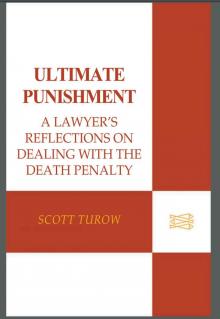 Ultimate Punishment
Ultimate Punishment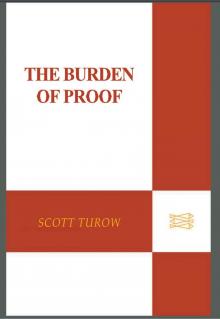 The Burden of Proof
The Burden of Proof Ordinary Heroes (2005)
Ordinary Heroes (2005)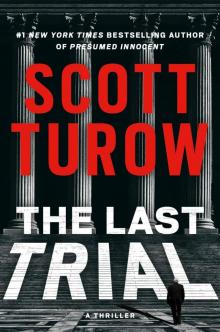 The Last Trial
The Last Trial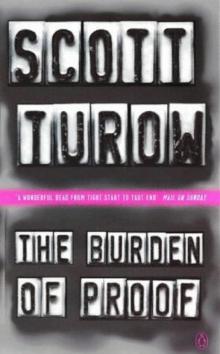 The Burden of Proof kc-2
The Burden of Proof kc-2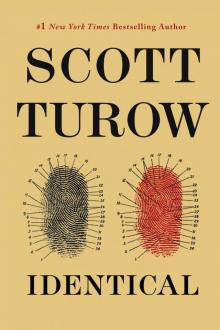 KC09 - Identical
KC09 - Identical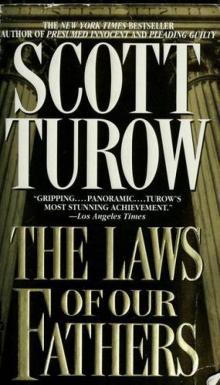 The Laws of our Fathers kc-4
The Laws of our Fathers kc-4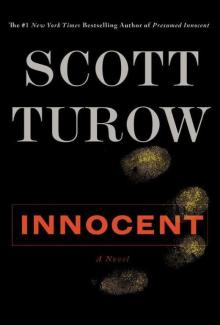 Innocent kc-8
Innocent kc-8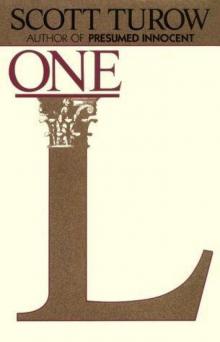 One L
One L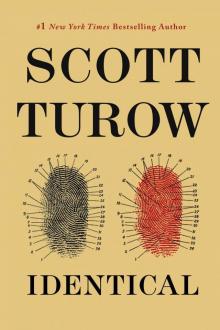 Identical kc-9
Identical kc-9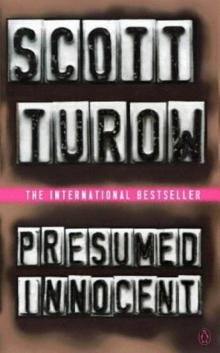 Presumed innocent kc-1
Presumed innocent kc-1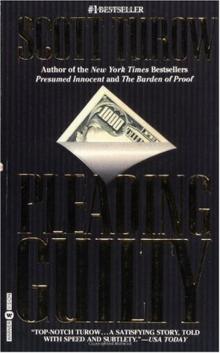 Pleading Guilty kc-3
Pleading Guilty kc-3 One L (1977)
One L (1977)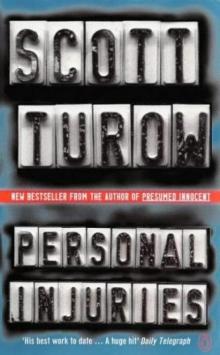 Personal injuries kc-5
Personal injuries kc-5